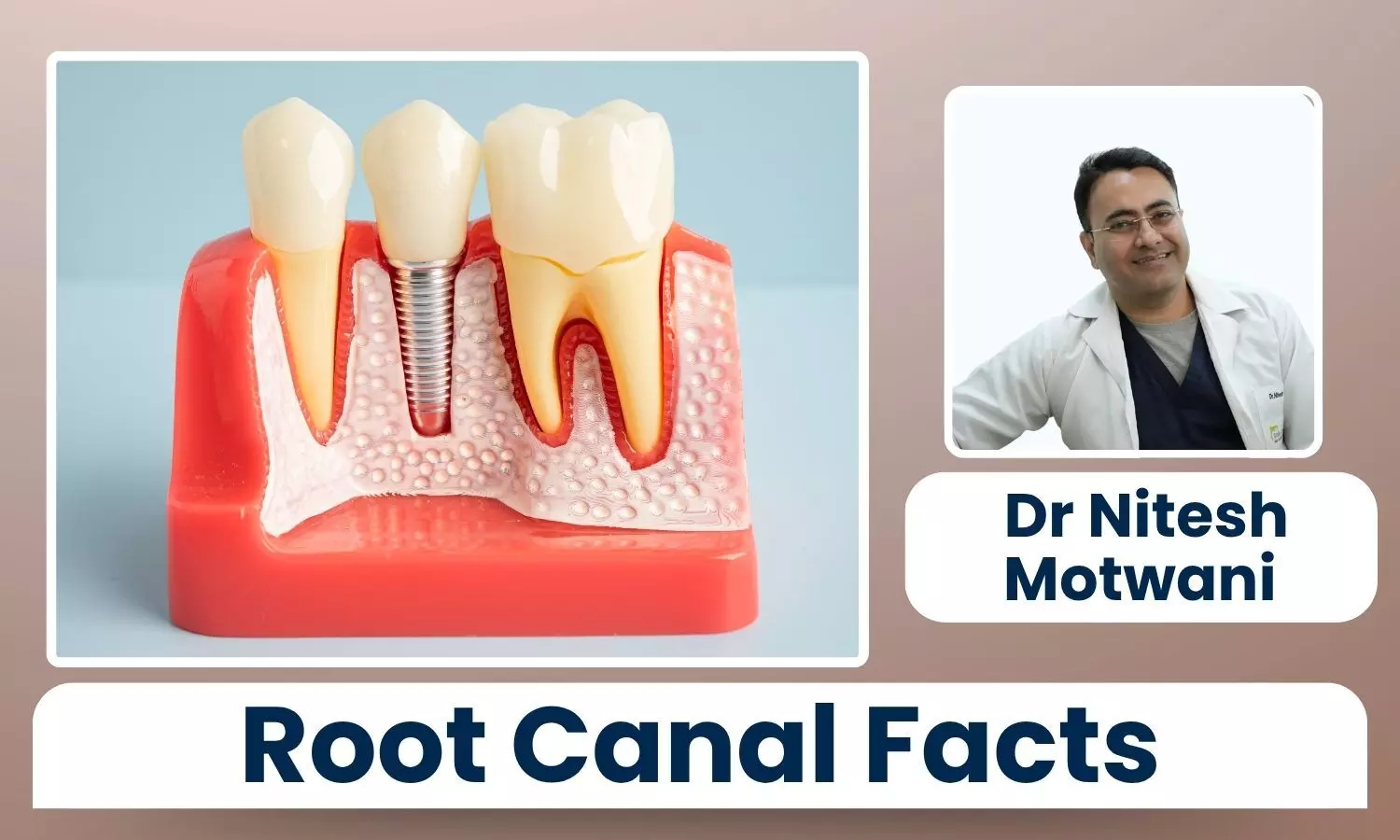5 Things Patients Should Know Before Going for a Root Canal - Dr Nitesh Motwani

The mention of root canal instantly causes anxiety to many individuals. Root canal treatment (RCT) is a myth-shrouded concept, which has been misconceived to present pain and discomfort.
As a matter of fact, it is a safe and effective and, in most cases, painless process that spares natural teeth and restores oral health. When you have been recommended to have a root canal, these are five great things you must be aware of before you get seated in the dental chair.
1. Root Canal saves your Natural Tooth. Among the largest merits of root canal treatment is the fact that it saves your natural tooth.
Most patients feel root canal means removing the tooth, but we are actually treating the infected tooth and saving it!
In cases of an infected tooth or trauma or destruction of the pulp (inner soft tissue) caused by severe decay, cracks, or trauma, it may appear that the only course of action is to extract the tooth.
Removal of a tooth may, however, cause lateral movement of other teeth, improper bite, or even expensive replacement procedures such as placing an implant or bridge. Root canal treatment enables you to preserve your initial tooth structure.
After the infected pulp is removed, and the tooth has been capped with a crown, it can serve in the same way as all your other teeth for years, even decades.
2. pain? The dreaded feeling
The Process Is Not as painful as you might believe. The modern root canals are not synonymous with pain, as most people think. Most patients indicate that the procedure is not more painful than having a filling due to the advanced technique of anaesthesia and rotary tools.
As a matter of fact, the actual pain is often the infection itself- sharp, throbbing pain or swelling. This pain is literally taken away with the help of the root canal procedure, as the infection is taken away at its source. You may also develop some light tenderness a day or two after the treatment, which is easily treated with an over-the-counter pain reliever.
3. It Normally Takes More Than a Single appointment.
Your dentist can finish the root canal in a single or two sittings, depending on the severity of the infection and the tooth. Single-sitting root canals are typical of simple cases. A series of visits can be necessary in case of a severe infection, or there is not enough time to disinfect the canals or complex anatomy (e.g., curved roots).
A crown is typically suggested after the root canal to make the tooth stronger as well as prevent fracture. This is one more step that should be expected by patients because a crown guarantees the lasting success of treatment.
4 Aftercare Is Crucial for Long-Term Success
Just because the infection has been treated doesn’t mean your tooth is indestructible. Root canal-treated teeth are more brittle than natural teeth because they no longer have live pulp. Without a crown, the tooth is at risk of breaking.
Good oral hygiene also remains essential—brushing twice daily, flossing, and regular dental checkups. Ignoring oral care could lead to reinfection, not only of the treated tooth but also surrounding ones. Following your dentist’s post-procedure instructions carefully will ensure smooth healing and lasting results.
5. It’s an Investment in Your Overall Health
Many patients hesitate because of cost or fear of the procedure, but a root canal is far more than a dental treatment; it’s a health investment. Untreated dental infections can spread to the surrounding bone, gums, and even other parts of the body, leading to serious health complications.
By choosing a root canal, you prevent this spread of infection while restoring your smile, confidence, and comfort in everyday activities like eating and speaking.
Additionally, the cost of a root canal plus crown is often less than the long-term expenses of tooth replacement options that follow extraction( i.e implants or bridges ).
So, Root canal is no cause to fear but to be grateful. It is a tooth-saving, painless and health-safeguarding process that has saved millions of smiles across the world.
You can confidently enter the surgery knowing what to anticipate, expecting aftercare, and trusting the experience of your dentist to leave with your teeth healthy and clean. In case you have been asked to undergo a root canal, then look at it as not an experience, but a chance to save your natural smile in the future.
Disclaimer: The views expressed in this article are of the author and not of Health Dialogues. The Editorial/Content team of Health Dialogues has not contributed to the writing/editing/packaging of this article.


